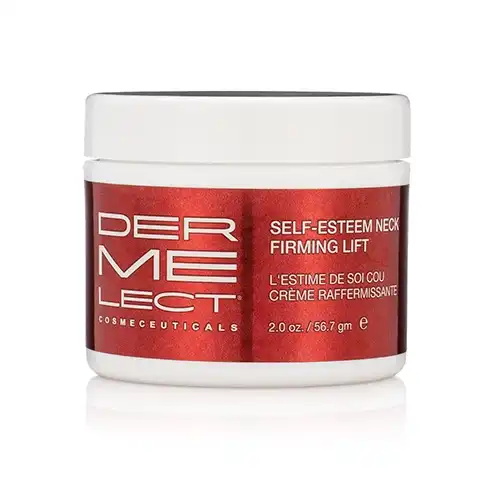“Stop doing and start thinking”
Kathy Giusti was 37 years old, with a toddler daughter, when her doctor said she only had three years to live. She had been diagnosed with Multiple Myeloma, a rare blood cancer, and was told there were no treatments available that could help her. So, she put her business school background and experience in the pharma industry to good use — and created the Multiple Myeloma Research Foundation to transform cancer research. Twenty-one years later, Kathy is still fighting, and her work has helped save countless lives. I spoke with Kathy about her remarkable work and resilience. Read our conversation below…
Katie Couric: You were diagnosed with Multiple Myeloma at age 37. Walk me through that moment. What was it like?
Kathy Giusti: At the moment, it was completely unexpected because I felt fine. I think the real challenge for me was when I actually studied the disease and this form of cancer, Multiple Myeloma. I started to realize there was not a single drug in the pipeline that was going to help me and that there hadn’t been a single new drug in the field in around 30 years. So, the hard part for me was that I was stunned.
I think, like many patients, I really wanted to have hope, but I remember calling my sister and saying, “This is just a tough cancer. It’s very uncommon. It skews older, male, and African-American, so it has been neglected over the years, and I’m trying desperately to find hope, but I don’t know how.”
How do you think that moment changed your outlook on life?
At that time, my daughter was 18 months old. So, I would do whatever I could to stay alive for her. But with my disease, there was no black or white back then. It was like, this is a terrible disease and you’re going to die. So I felt I needed to live longer than the three years my doctors were giving me. That was my only hope. Goal one was please let my daughter remember me.
Number two, which emerged ironically just a couple of weeks later, was if it’s the last thing I do, I really want to give my daughter a sibling. So I ended up interviewing fertility doctors at the same time that I was interviewing my oncologist. I decided if becoming pregnant would mean I might die a little bit faster, but I left a sibling — that was really important to me. So I took the chance, and it was a crazy time dealing with oncology while also dealing with fertility. One is looking at death and one is looking at life.
I’ve always admired your work with the Multiple Myeloma Research Foundation (MMRF). You’ve taken a business approach to accelerating the development of 11 new drugs for Multiple Myeloma patients. The outlook for this cancer seems much better than it was when you were diagnosed when you were 37. Can you explain why you took this approach and how it’s been so successful?
I ended up taking this approach because it’s what I knew to be honest with you. I was a pre-med major undergraduate and then ended up going to work in the pharmaceutical industry. From there, I went to business school and then back to the pharmaceutical industry.
I really did understand the importance of business to accelerate science. When I started the MMRF, I ran it like I would have run a pharmaceutical company. I started by writing the strategic plan, and I talked to a lot of the different nonprofits that were out there. I realized that the majority of them weren’t doing any cancer research. My first instinct was to look at the pipeline and say, “Oh my gosh, there are no companies working in this field. How do we change it?” I always looked at it with a patient lens, and I think this is what helped me.
You’re one of the leaders in improving cancer research. Can you talk about being a leader and what are some of the most important things you’ve learned about being a leader?
I found that the best thing you can do is work with other people that share your passion and your innovation. One of the things that I love about taking the time to write these business plans [for MMRF] is that along the way, when I’m interviewing all of these people and asking for their amazing insights, I can always sense that there’s 15 people I’ve spoken to that I know can help change the world with me. They share my passion for finding cures for patients.
You can never lead by yourself. So I think you need to surround yourself with incredibly smart people that can help you lead and help you engage as many people around you as possible.
So many of us know someone or is that someone who’s affected by cancer? What’s one piece of advice you would tell a cancer patient?
Take a deep breath because you will and you do have time. I think the most important thing you can do is that if there is a nonprofit research foundation in the space, find them and talk to them because they can give you a lot of good advice.
I think after you find these foundations, the most important thing you can do is find the right center and the right doctor — and it has to be a center and doctor who works specifically in your cancer. I can’t tell you how many times I’ve heard stories where patients are diagnosed with Myeloma and they say, “But my friend told me to go here and here” and then you find out that their friend had prostate cancer and they didn’t have Myeloma. I think people really need to understand that certain centers are really good at certain cancers as are certain doctors.
What about for those who are caring for a loved one with cancer?
Here’s the thing that I always tell the caregivers: Patients want their doctors to like them, because they are the ones that are taking care of them. The caregivers I think can be the ones to ask the probing questions that might be on the patient’s mind, but the patient hasn’t asked that question already.
I think caregivers can also be really good at being brutally honest about how a patient is feeling because patients often don’t want to complain. But if a caregiver could say, you know, my dad is up all night because of these steroids or my dad is having terrible gastrointestinal problems because of this drug, that dose could be lowered. Things can be titrated, but if the patient isn’t saying something and the caregiver isn’t saying something, things just go on as they are and yet the quality of life could be improved.
What’s one piece of advice you would tell your younger self?
I would say: Stop doing and start thinking. I say this because every morning I get up at the crack of dawn and take that quiet time to focus on how to move forward. It’s critical to know where you want to go and why as opposed to reacting to the signals you get all day long.
This interview has been edited and condensed.
This originally appeared on Medium.com













